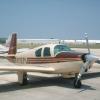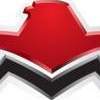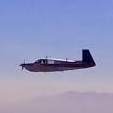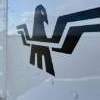All Activity
- Past hour
-
What’s going on with Mooney & LASAR — the straight story Hi Mooney family, We’ve heard the big question loud and clear: what the heck is going on with Mooney and LASAR? Here’s the answer. Over the past months, we've kept our heads down fixing the foundation—late nights in the hangar, sorting drawings, validating specs, rebuilding tooling, and re-engaging vendors. We didn’t go quiet because we didn’t care; we went quiet to get real work done. Now it’s time to talk about what’s changing—and why. LASAR didn’t set out to be a hero. We’re engineers, mechanics, and parts people—builders. When Mooney called, we answered. When the Mooney torch needed picking up, the hands ready to grab it were ours and those of the Kerrville team who’ve loved and built these airplanes for decades. Our vision is simple and stubborn: Mooney, by the people and for the people. We’re committing every dollar we can to one job: keep ’em flying—not someday, now. How we’re organized (clear lanes, one mission): · Mooney builds certified parts and stewards the Type Certificate. · LASAR distributes, supports customers, and supplements availability with additional and PMA parts where appropriate. · LASAR Aviation doesn’t manufacture parts; it’s the coordination and funding layer—the “plumbing” (finance, purchasing cadence, vendor onboarding, QA docs, IT, scheduling) that keeps the whole system moving. Plain truth: LASAR Aviation is the entity keeping Mooney funded, operational, and in the fight. One team, one mission: keep ’em flying. What we’ve been doing: · Working to stabilize the ship: AOG triage, quick wins out the door, weekly Kerrville+LASAR stand-ups. · Prioritizing the “grounders”: Identified the SKUs that park airplanes when they’re out of stock and locked specs, dates, and minimums. · Building the plan: Sequenced a Year-1 ~$3M parts build by safety-of-flight impact and lead times. · Tapping Kerrville know-how: Capturing invaluable knowledge and leveraging the know-how of a deeply dedicated team. · Tightening the plumbing: Clear change control, traceable paperwork, and purchasing tied to real shop schedules. What’s happening right now: · Long-lead materials & vendor deposits are being staged in the right order. · Portal V1 (inventory, ordering, certs) is coming online for MSCs with real-time visibility across Mooney and LASAR warehouses, predictable discounts, and AOG priority. · We’re modernizing the online experience for owners and shops so parts buying belongs in 2025, not 2005. The hard truth (and the necessary change): In today's dollars, too many parts leave Mooney below true cost. Every box like that drains our ability to keep lights on, retain talent, and buy material. That math doesn’t work for a week—let alone a decade. Effective immediately, Mooney-built parts will reflect a uniform 30% price increase. This isn’t margin fluff. It funds the basics that keep your aircraft supportable: · Materials that show up on time · Certified labor that stays · Quality systems that catch issues before they hit your airplane · Equipment upkeep so we’re not nursing machines past tolerance Pricing on supplemental/PMA items distributed by LASAR may vary by product; updated numbers will be clearly posted in the Portal and online catalog. If a price moves, we’ll explain why—in plain English. What comes next: · Expand the catalog (high-impact SKUs first) and publish target restock dates · Bring more machining/finishing in-house to reduce cost and time · Maintain a fair, transparent pricing model tied to real inputs and quality · Publish quarterly progress reports: what shipped, what’s in production, what’s next Your role in the story: Time and money aren’t on our side, so we’re funneling all profits back into inventory, people, and machines to keep Mooney afloat and moving forward. This community has always been Mooney’s edge. In the days ahead, we’ll share a simple, fair way for owners and partners to lean in and directly accelerate the ramp. Thank you for sticking with us—and for holding us to a high bar. This isn’t glossy marketing; it’s a promise: every dollar to the mission; every part to the fleet. Together with the Kerrville crew—and with you—we’ll secure the next 50 years of Mooney… one part, one airplane, one day’s work at a time. Blue skies, Brett Stokes and John Smoker CEO, COO, LASAR Inc.
-
Only a month later on reply... Do your due diligence. Even though seller doesn't understand why you should.
- Today
-
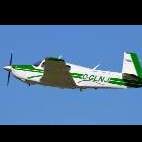
Upper cowl machine screw issue on '83 J
Slick Nick replied to 0TreeLemur's topic in Modern Mooney Discussion
Just drill out the rivets and put some new nut plates in. -
Yep, saw that today too… -Don
-
This just showed up today: What’s going on with Mooney & LASAR — the straight story Hi Mooney family, We’ve heard the big question loud and clear: what the heck is going on with Mooney and LASAR? Here’s the answer. Over the past months, we've kept our heads down fixing the foundation—late nights in the hangar, sorting drawings, validating specs, rebuilding tooling, and re-engaging vendors. We didn’t go quiet because we didn’t care; we went quiet to get real work done. Now it’s time to talk about what’s changing—and why. LASAR didn’t set out to be a hero. We’re engineers, mechanics, and parts people—builders. When Mooney called, we answered. When the Mooney torch needed picking up, the hands ready to grab it were ours and those of the Kerrville team who’ve loved and built these airplanes for decades. Our vision is simple and stubborn: Mooney, by the people and for the people. We’re committing every dollar we can to one job: keep ’em flying—not someday, now. How we’re organized (clear lanes, one mission): · Mooney builds certified parts and stewards the Type Certificate. · LASAR distributes, supports customers, and supplements availability with additional and PMA parts where appropriate. · LASAR Aviation doesn’t manufacture parts; it’s the coordination and funding layer—the “plumbing” (finance, purchasing cadence, vendor onboarding, QA docs, IT, scheduling) that keeps the whole system moving. Plain truth: LASAR Aviation is the entity keeping Mooney funded, operational, and in the fight. One team, one mission: keep ’em flying. What we’ve been doing: · Working to stabilize the ship: AOG triage, quick wins out the door, weekly Kerrville+LASAR stand-ups. · Prioritizing the “grounders”: Identified the SKUs that park airplanes when they’re out of stock and locked specs, dates, and minimums. · Building the plan: Sequenced a Year-1 ~$3M parts build by safety-of-flight impact and lead times. · Tapping Kerrville know-how: Capturing invaluable knowledge and leveraging the know-how of a deeply dedicated team. · Tightening the plumbing: Clear change control, traceable paperwork, and purchasing tied to real shop schedules. What’s happening right now: · Long-lead materials & vendor deposits are being staged in the right order. · Portal V1 (inventory, ordering, certs) is coming online for MSCs with real-time visibility across Mooney and LASAR warehouses, predictable discounts, and AOG priority. · We’re modernizing the online experience for owners and shops so parts buying belongs in 2025, not 2005. The hard truth (and the necessary change): In today's dollars, too many parts leave Mooney below true cost. Every box like that drains our ability to keep lights on, retain talent, and buy material. That math doesn’t work for a week—let alone a decade. Effective immediately, Mooney-built parts will reflect a uniform 30% price increase. This isn’t margin fluff. It funds the basics that keep your aircraft supportable: · Materials that show up on time · Certified labor that stays · Quality systems that catch issues before they hit your airplane · Equipment upkeep so we’re not nursing machines past tolerance Pricing on supplemental/PMA items distributed by LASAR may vary by product; updated numbers will be clearly posted in the Portal and online catalog. If a price moves, we’ll explain why—in plain English. What comes next: · Expand the catalog (high-impact SKUs first) and publish target restock dates · Bring more machining/finishing in-house to reduce cost and time · Maintain a fair, transparent pricing model tied to real inputs and quality · Publish quarterly progress reports: what shipped, what’s in production, what’s next Your role in the story: Time and money aren’t on our side, so we’re funneling all profits back into inventory, people, and machines to keep Mooney afloat and moving forward. This community has always been Mooney’s edge. In the days ahead, we’ll share a simple, fair way for owners and partners to lean in and directly accelerate the ramp. Thank you for sticking with us—and for holding us to a high bar. This isn’t glossy marketing; it’s a promise: every dollar to the mission; every part to the fleet. Together with the Kerrville crew—and with you—we’ll secure the next 50 years of Mooney… one part, one airplane, one day’s work at a time. Blue skies, Brett Stokes and John Smoker CEO, COO, LASAR Inc. Mooney@LASAR.com 1.541.MyLASAR (541.695.2727) 4439 SW Airport Rd. Prineville, OR 97754 https://mailchi.mp/39736a6a6d1d/weve-got-new-phone-lines-heres-how-to-reach-us-14769375?e=5483553f5d
-
Jetpilot86 started following At what RPM should ALT VOLTs annunciation extinguish?
-
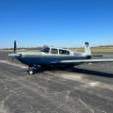
At what RPM should ALT VOLTs annunciation extinguish?
Jetpilot86 replied to hazek's topic in Mooney Bravo Owners
When running all my avionics off my GPU, I’m pulling about 9.5 amps. -
Here ya go. 4 hour flight with a bunch of testing at various power settings. https://apps.savvyaviation.com/flights/shared/flight/10056430/707618c4-e56f-4748-9e8d-47456b47ccf4
-
Providing the part drawing to the machine shop is sufficient involvement, I believe.
-
An A&P did some work on my Mooney today. He and I put the lower cowl on and he left for the day. While installing the upper cowl I encountered a problem. The upper cowl on my '83 J has a bunch of quarter-turn fasteners and three machine screws on each side. Two machine screws go into the stanchion around the propeller flange, and one on the forward corners. The screw on the right forward corner started normally but after a few turns started to get real tight... Those are stainless steel screws and it felt like it might be starting to spall. So I backed it out. It was tough to turn and definitely felt like it was spalling. The threads were definitely messed up. Looking in there, the threads on the inside nut plate are not perfectly aligned with the hole in the nut plate. The threads on the left front nutplate are centered. On the right hand side it seems that the nut is too high. Looking in there I could see a many threads in the bottom of the hole and none in the top. Question: are those nut plates with captured floating nuts? Why is it suddenly out of alignment, and how can I center it? Any ideas on how to fix this? One Idea I have is to run a tap in there and see if that centers it. Thought I would ask the collective about this idea before trying it. Thanks, Fred
-
-
Don't you know that GA planes will suddenly spin at >=31 degrees, regardless of speed or angle of attack?
-
There is much spirited debate about this topic. Look for @DVA’s post on Bravo engine management and join the fun. Since the POH Cruise Tables are effectively useless above 27”/2200, many opinions on operating the TIO540-Bravo have developed here. What I posted above is by no means an absolute, but my experience with my 240 SFOH engine. @donkaye, MCFI does not ever run LoP, having had issues, with the exhaust I suspect, and will probably chime in here before long. You’ve already heard from @Rick Junkin who is probably the most successful at running LoP. For awhile, I was fat, dumb and happy thinking I was able to duplicate his numbers but he kept nagging at me that my TIT was too low despite a very well respected Mooney Shop telling me it was just fine. Well I had a different well respected Mooney mechanic tell me it was too low as well. Turns out my TIT Probe was 1 ohm too low and I was really running the 30/22 peak numbers (1690°TIT), and not the 1540 I believed. It’s why I try to post as much data for a power setting here as possible, it’s already saved me from abusing my “baby” engine. After my research, I’m comfortable running CHT’s up to 400, the 380 offered here often is an actual Continental number, not a Lycoming number. My other mechanics recommendations range between 380-420° in higher power cruise, depending on the operating FF. My personal limit is 399° in cruise and I prefer lower while keeping the Cowl Flaps closed to get that 1-2kts. Since I added the FineWires and SureFly mags, the climb heating problems I was having with a cylinder are now down to “sometimes” a problem in cruise. The actual weak link in the engine is the exhaust and that is the reason why the unofficial TIT limits are 1600-1620 depending on who you ask. I’m sure I drive a few crazy here because I not only want to know how, but why people advocate what they do for our Bravo’s. Many here run the Key # method, but note above, not all Key 53’s are equal, nor is the % power of Key 53 constant for all altitudes if you are considering running Key53 peak or lean, see the engine manual to confirm that. I assume you have the ability to record data from your engine monitor. If not, I’d suggest getting one where you can and have it analyzed, by someone like Savvy. Ref: https://www.lycoming.com/sites/default/files/file/2025-02/60297-23P%20-%20TIO-540%20Series%20-%20Parallel%20Valve%20Cyl.pdf Moral here is read, research, and figure out which method works best FOR YOU! And understand why it works for you!!!! The good thing about this group is that we are happy to share. Invest in Savvy Engine support and take the APS Engine class, at least online. We own a collection of high strung thoroughbreds, each with their own idiosyncrasies, on a good day we tame them. This week, I limped to cheap gas at 24/22 peak TIT, only to run the next leg at 75% and 18gph to make up some time. I’m getting progressively more comfortable with need based settings vs one size fits all. There is much versatility available as you get comfortable with the options. Yes, I’m probably going to run mine a bit harder than you intend, but I’m also boroscoping every other oil change, or more and so far my only problems have been bad mag and wrong probe induced. How I run it also varies on the day’s mission. HTH, and don’t hesitate to reach out with or post questions.
- Yesterday
-
Research "Owner Produced Parts". There has been a lot of discussion here about it, there are many FAA presentations about it, etc., etc. Basically, you can make them or have them made for use on your own aircraft, there are several different ways in which you can "particpate" in the production to make it officially blessed as a properly produced part for use on your aircraft.
-
Question Landing Gear Actuator
rathomas22 replied to charlesual's topic in Vintage Mooneys (pre-J models)
Lasar will also have records of the testing yellow tag as well from 8/19/2025. -
Question Landing Gear Actuator
rathomas22 replied to charlesual's topic in Vintage Mooneys (pre-J models)
Yes, I believe it is my first post. Not exactly sure the signifigance. I’m in N2554W if you want to verify me or my aircraft. I bought this acuator to fix my M20E model, but was able to locate a new set of 40:1 gears for mine. Lasar thought that was the better option, so I had them certify this one and send both back to me. Gears are in good shape.Please let me know if you have any other questions. Thanks, Ryan 9102648213 -
So how does that work? Is it legal to have a shop build that block for me? I’ve never been down that road before. Sent from my iPhone using Tapatalk
-
Then once you follow @KSMooniac's advice on seeing whether you have provisions for headrests, if you find you do, some have gone to salvage yards and found Toyota headrests the same size and had them upholstered to match their seats.
-
Many older airplanes (i.e., ours) have damage history. It's pretty normal for something to have happened over 40-60+ years. As long as it was properly repaired, there's usually not much consequence after a few years.
-
I have also done it alone several times. I had 2 issues - my headliner is pretty brittle and some of the screws in the headliner are a PITA (especially to find to get started). While unscrewing the last corner or trying to thread the first corner, I ran the risk of the headliner flexing and cracking. I used some long pieces of cardboard folded into V shapes as props cut just long enough to support the headliner weight both removing and installing.
-
What seats do you have now? There might be headrest provisions hidden under the covering. They're just simple aluminum vertical tubes welded to the top of the frame that are a couple of inches long. You might have to remove the back panel and take a look.
-
I just got a text from a friend selling his 1987 252. If you're looking or know someone that is, it may be worth taking a look. https://aircraftforsale.com/aircraft/single-engine-piston/mooney/m20/m20k-252tse/68debd04-f73b-4507-989a-0f5a3eaf2642
-
Hello Mooneyspace, would anyone happen to have a high-resolution digital image of the Mooney logo shown in the attachment? Scalable vector graphic (SVG) format would be preferred. Thank you in advance.
-
Yes, this is the plane I'm getting. We went thru the logs back several years. I didn't think about the fact that the "damage history" could have been simple hanger rash or a runway excursion. I'm pretty confident that the damage was several years ago and the bank was only concerned with damage in the last 5 years. Thanks for the reply! Really looking forward to being part of this community.

